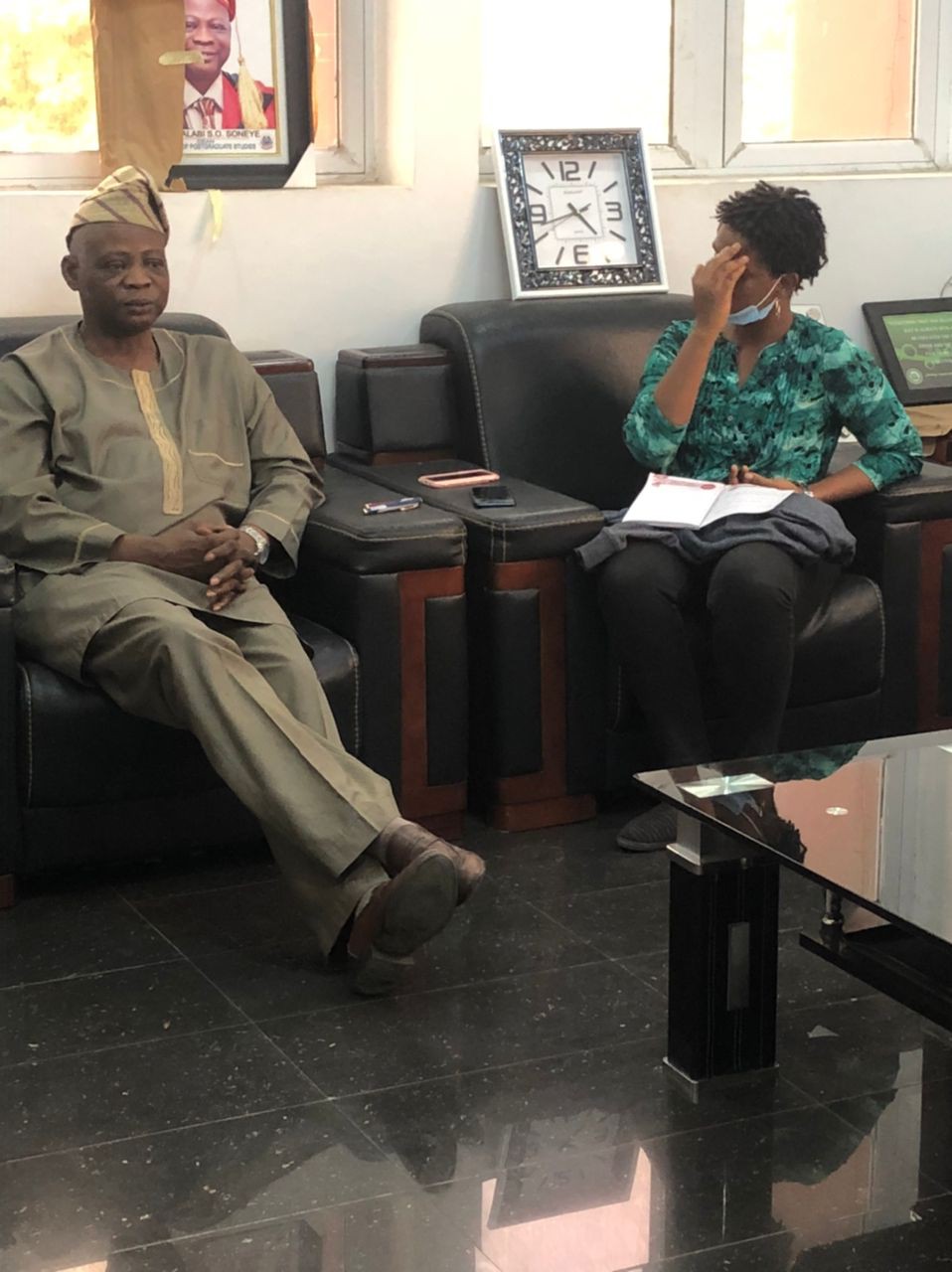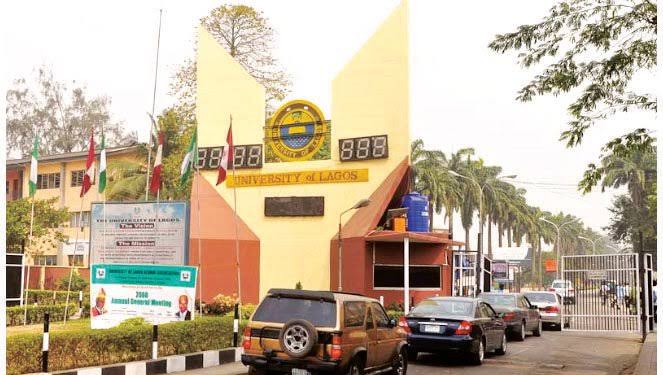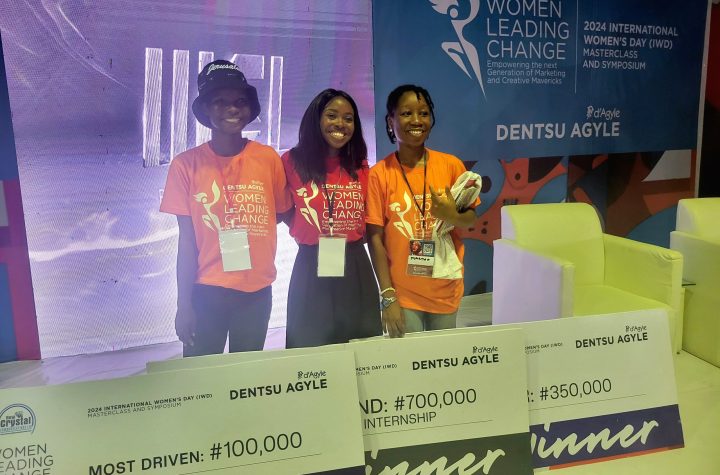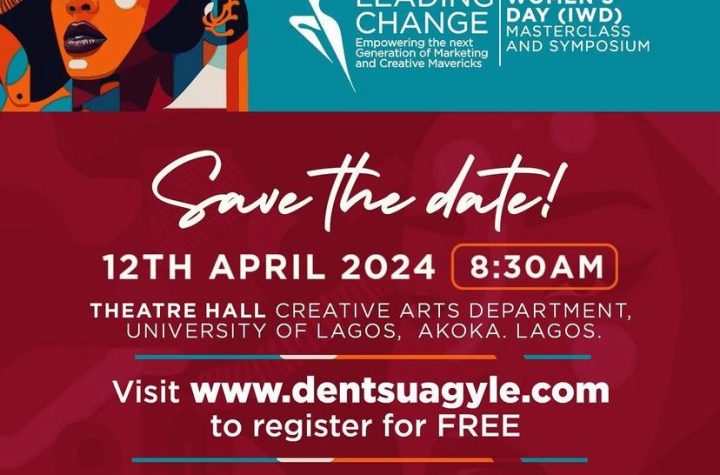
SPGS DEAN, PROF. ALABI SONEYE, NEWS EDITOR UNILAGSUN, ANDREA UMOGBAI.
Ofili Nonso,Andrea Umogbai ,Falola Gabriel ,Salam Adejoke,Odekhian Louisa
The Dean of School of Postgraduate Studies (PSGS), Prof. Alabi Sholeye, has described the duo of the pandemic and the 10-month long ASUU strike as a double-edged sword for the School of Postgraduate Studies.
Sholeye made this known in an interview with UNILAG Sun, explaining that the events brought merits and demerits which caused the school to launch its online platform that had been in the making Pre-COVID.
He recalled the pre-COVID buzz that usually surrounded the school which necessitated the plans for an online programme.
“Before Covid19 everybody would want to come here… I was just six(6) months in the office. When covid19 started, we were already bringing up some modalities that will reduce physical or face to face interaction.
We came up with this our online programme, thirteen(13) lines each for different units, that you can call and get your messages or advice then three or four(4) functional email you send messages within few hours or minutes, depending on the traffic, you get a response”, she noted.
Sholeye further disclosed that the introduction of online activities eased the burden of transportation on those who lived far away or outside the country.
The Dean said, “You stay in Agege, you stay in Festac or Lekki? You don’t need to spend three to four hours in traffic to come to your office to work. You can work from home. We network, exchange ideas, e-mails and all that. Then even our results, there is troubleshooting of problems for students and colleagues even within international communities as well as others from other campuses”.
“We had already established these online activities, starting from meetings to lectures. Even interaction with the outside world, up till now we still do most of our meetings on Zoom except if we are not many, so everybody will be on Zoom because we have facilities to do that”, he added.
He noted that despite the rushed school session, the school would be producing as many graduates as it did in its previous session.
“We will be having an average of some close to four thousand (4000) Masters students, and about one hundred and thirty eight (138) PhDs. This we produced within four months, because we did a convocation in July. The candidate results that were taken by the Senate in May had already graduated. Over 5 months we are producing almost what we produced during Covid-19 of two years. So, it is as a result of these”, he said.
He further noted that the school’s affiliations with other schools had contributed to the progress of the school.
“We pick based on what we think we can add, what we think we can put on the table or what they think we can put on the table. We are selective. We do not pick a university that doesn’t have anything to add to your value or any organization.
“We even have collaborative studies. You do part of your studies here. The students go to wherever for part of their studies. We exchange students and have collaborative supervision of a PhD. A supervisor will be here, another supervisor will be there or two will be here. That has accounted for our performance in terms of productivity.”
He expressed the school’s concern for the postgraduate students and cited a few ways the school was trying to reduce these. “We’re very close to our students and we share their burdens sometimes. However, it’s very difficult going to school in Nigeria now because the jobs are not there. Some are not able to fund themselves, they even start and then midway they just request they want to defer for financial reasons and we allow it.
“You cannot defer for more than one year on a two-year programme. So that people don’t abuse it. If you don’t do it after one year, we ask you to go and reapply,” the dean added.
Sholeye also explained that the Postgraduate Trust Fund established four years ago has provided students with financial support to carry out research while undertaking their programmes at the school.
“It’s annual and we don’t allow anybody to take it more than once. So, if you qualify and get it, you’re given the money. But, we make sure we encourage you, we counsel you on what to use the money for. It’s for your research nothing more.
“Then, there is the Postgraduate Development Fund which is part of the income generated by the PG school from ten percent of the school fees. So, the departments have access to it, to now improve their postgraduate studies and programmes.”





More Stories
UMCAA organises free 3-day workshop
D’Aglye to Hold Symposium for UNILAG Female Students
UNILAG welcomes Pelumi Nubi Amid Fanfare